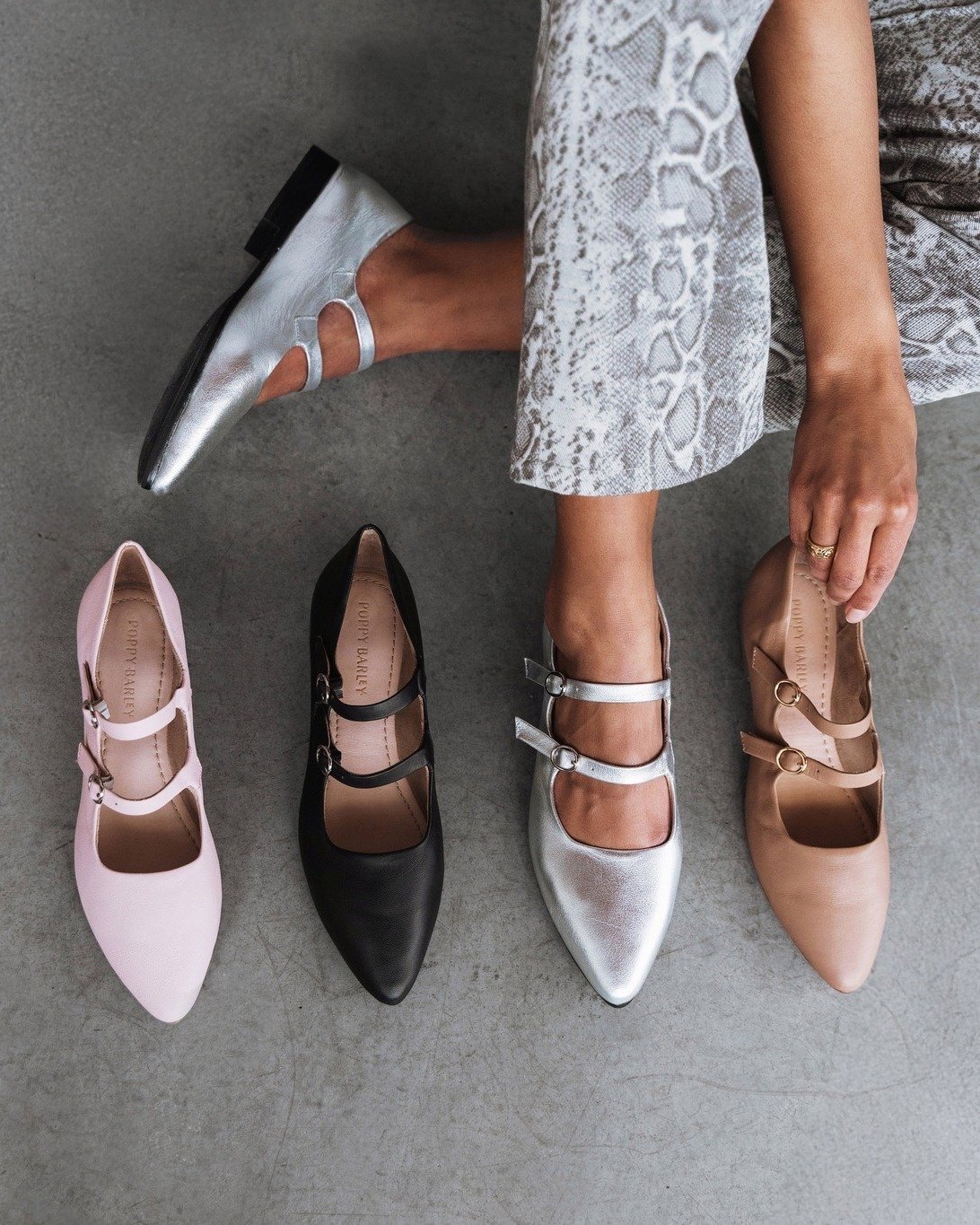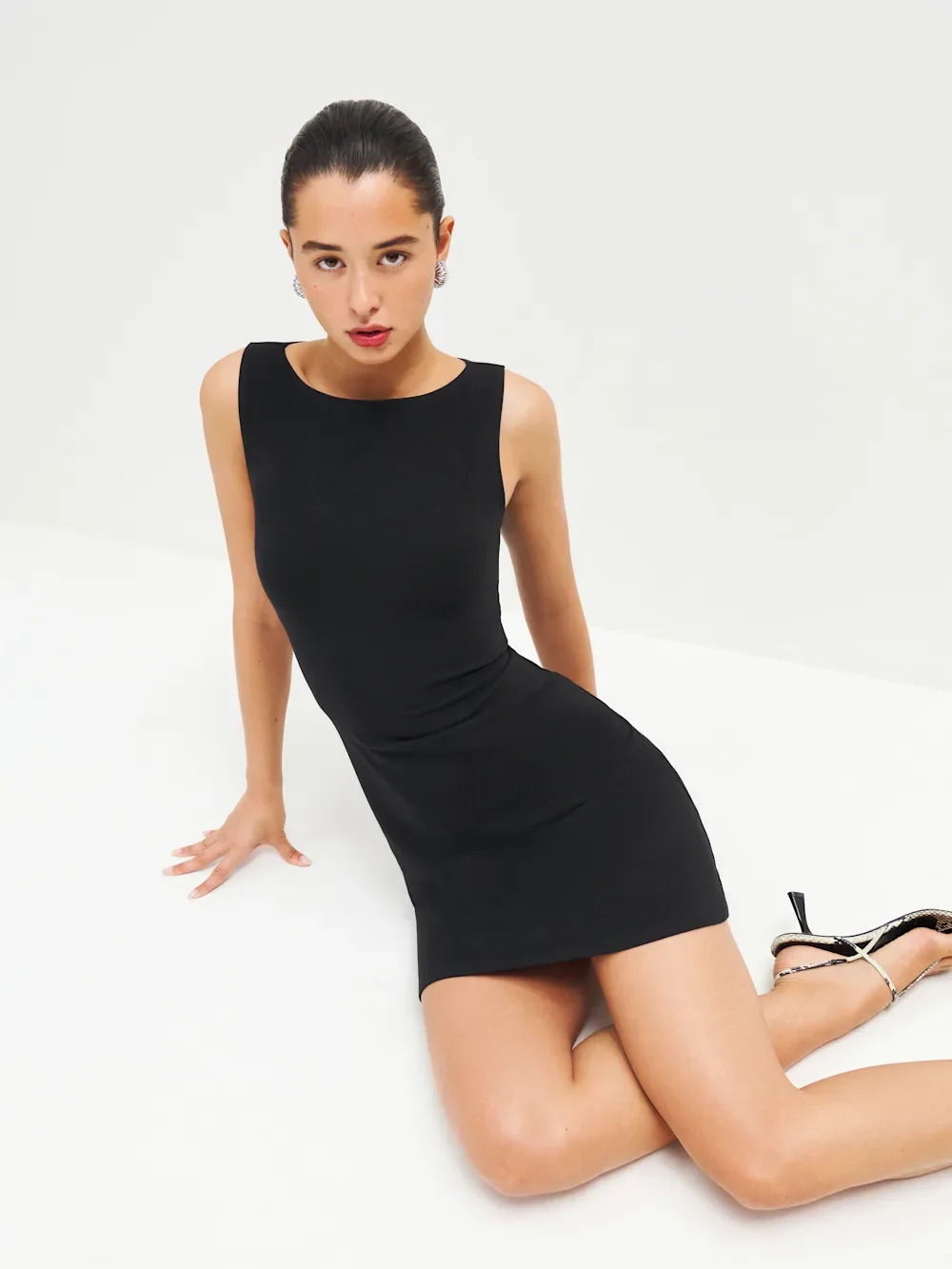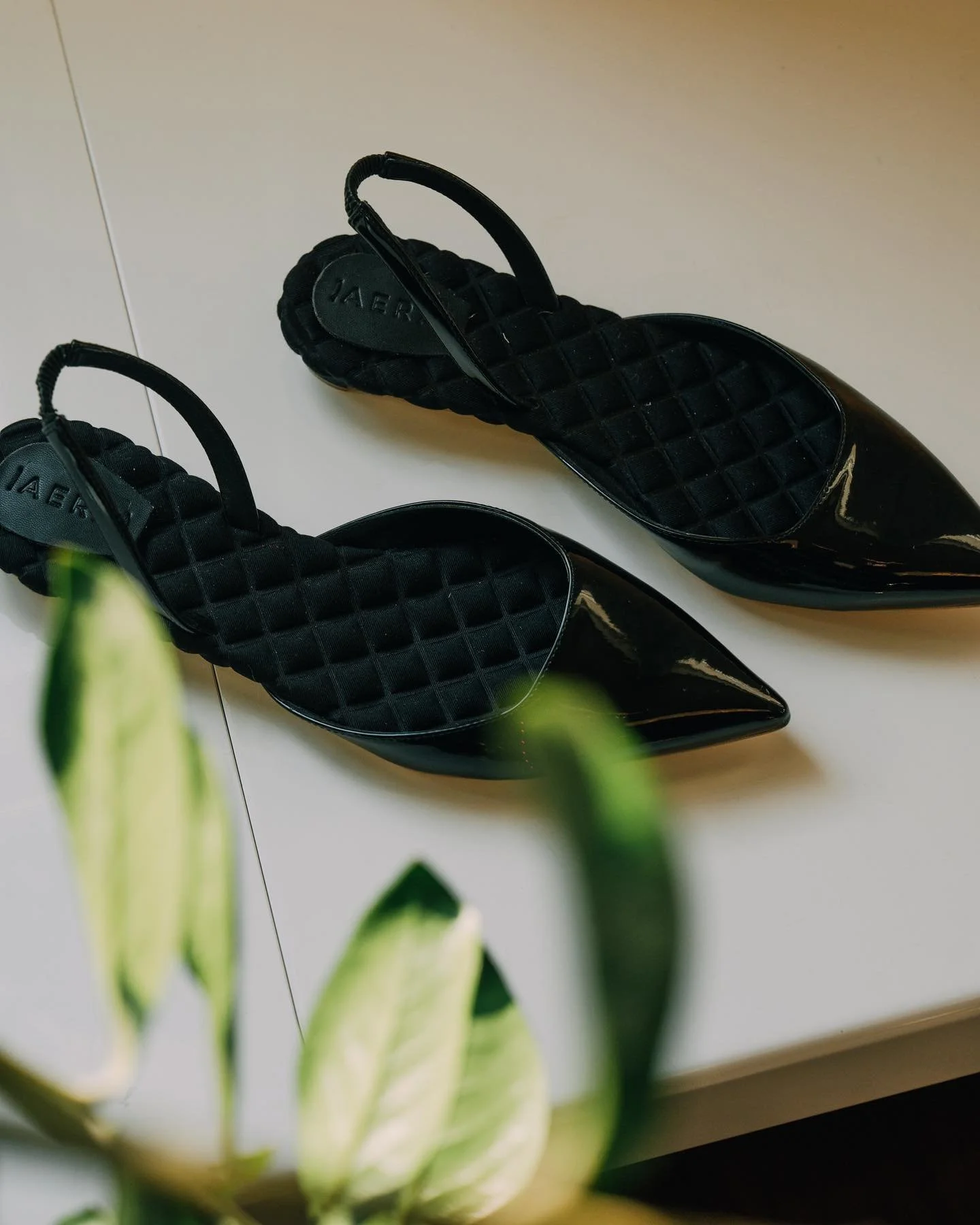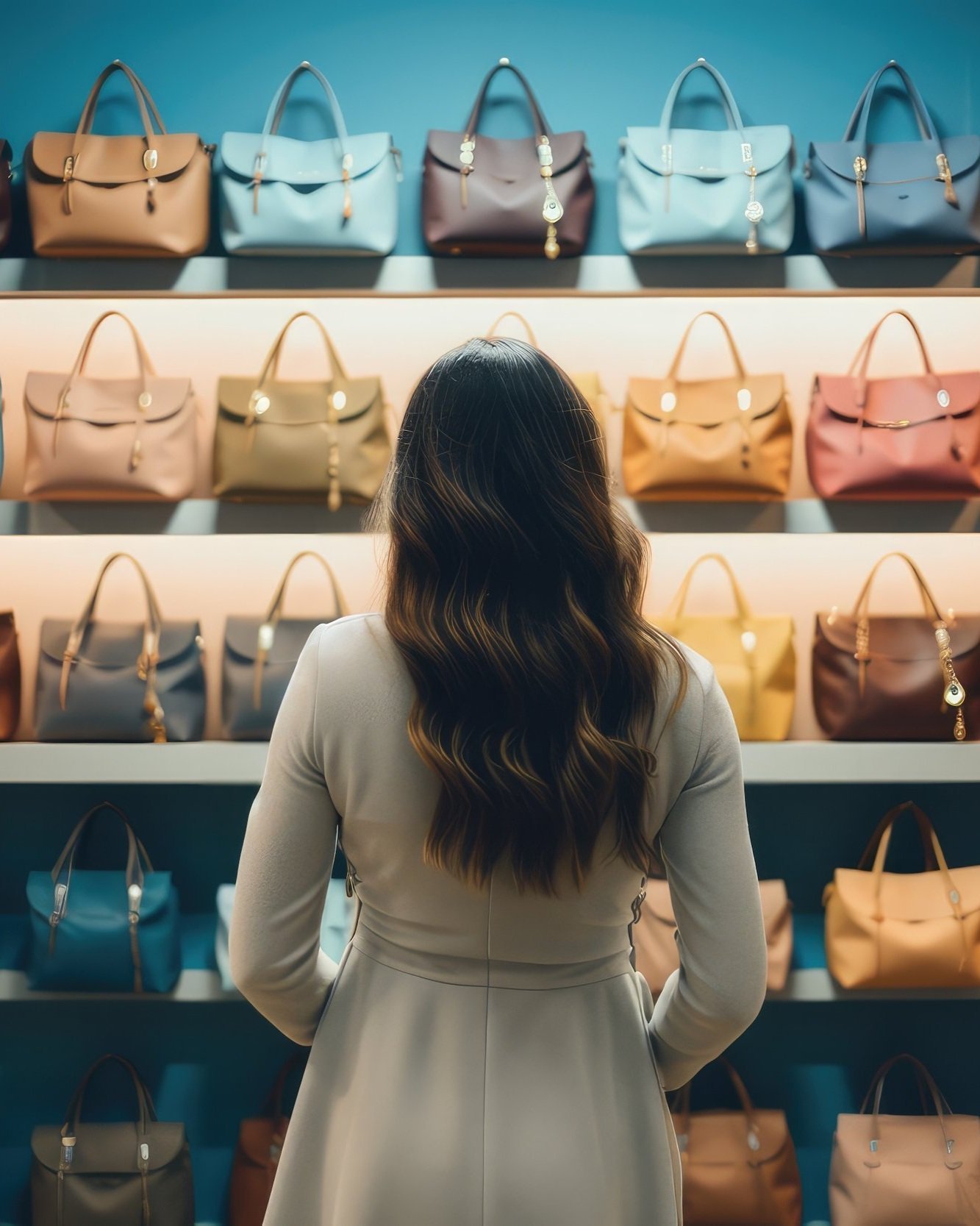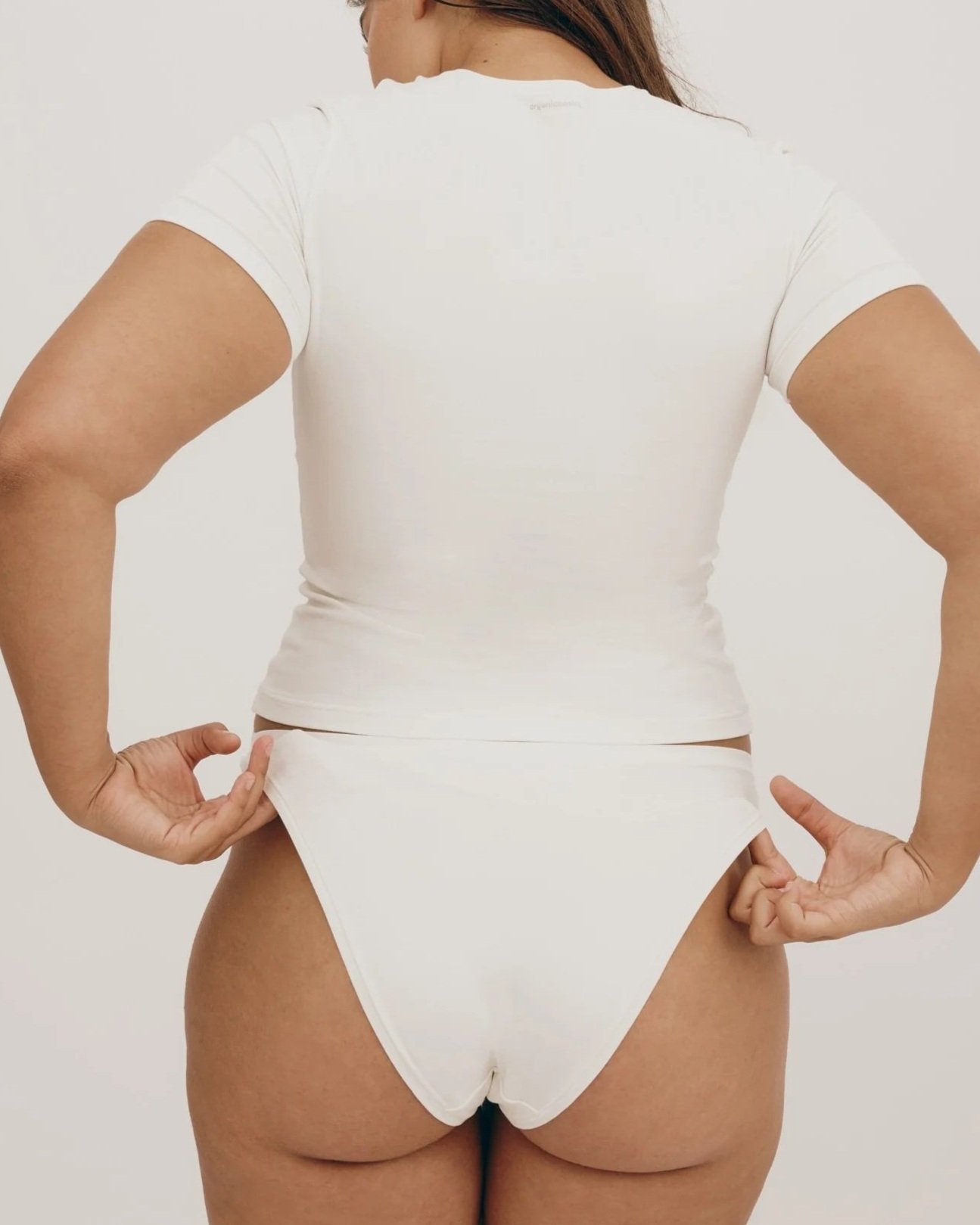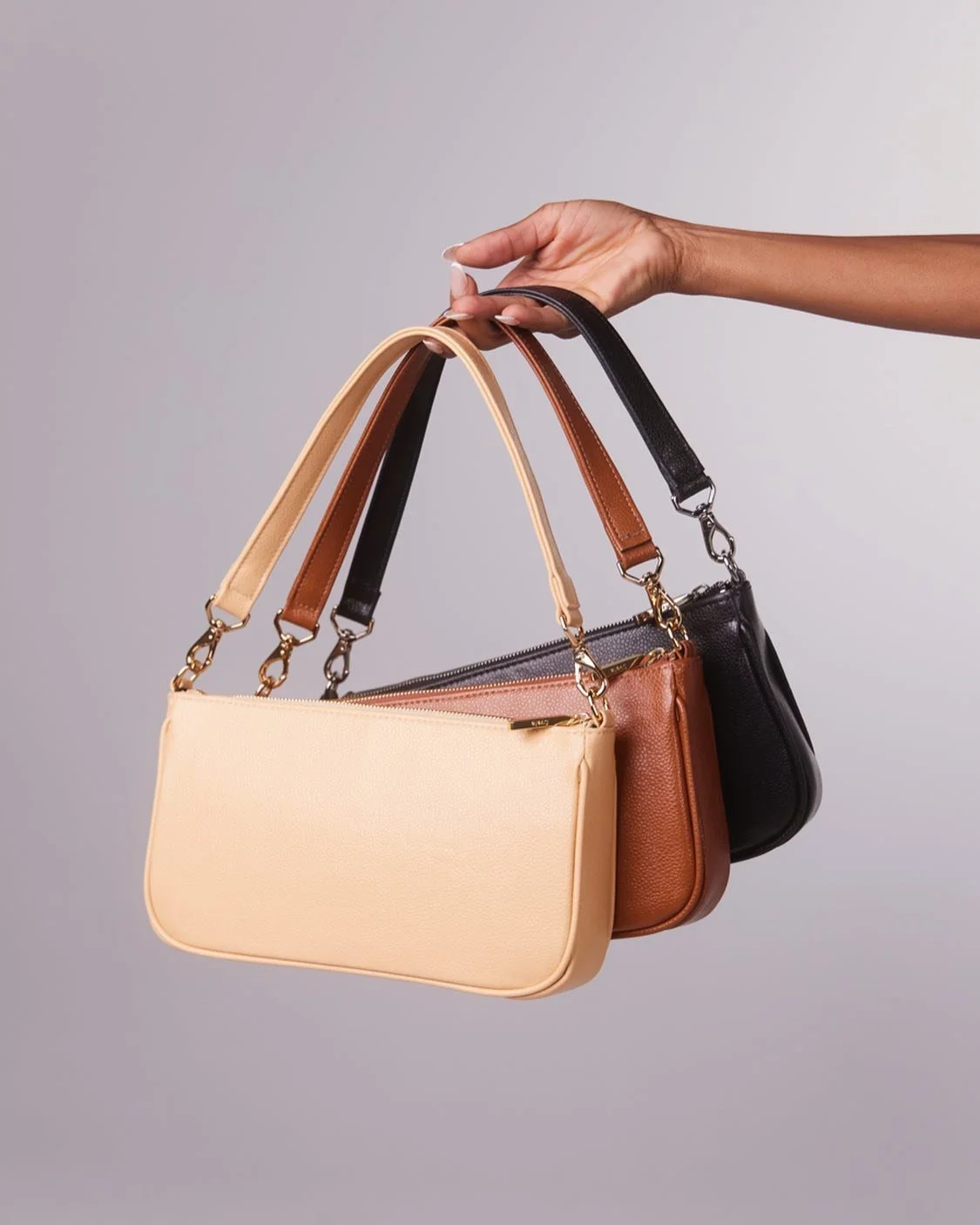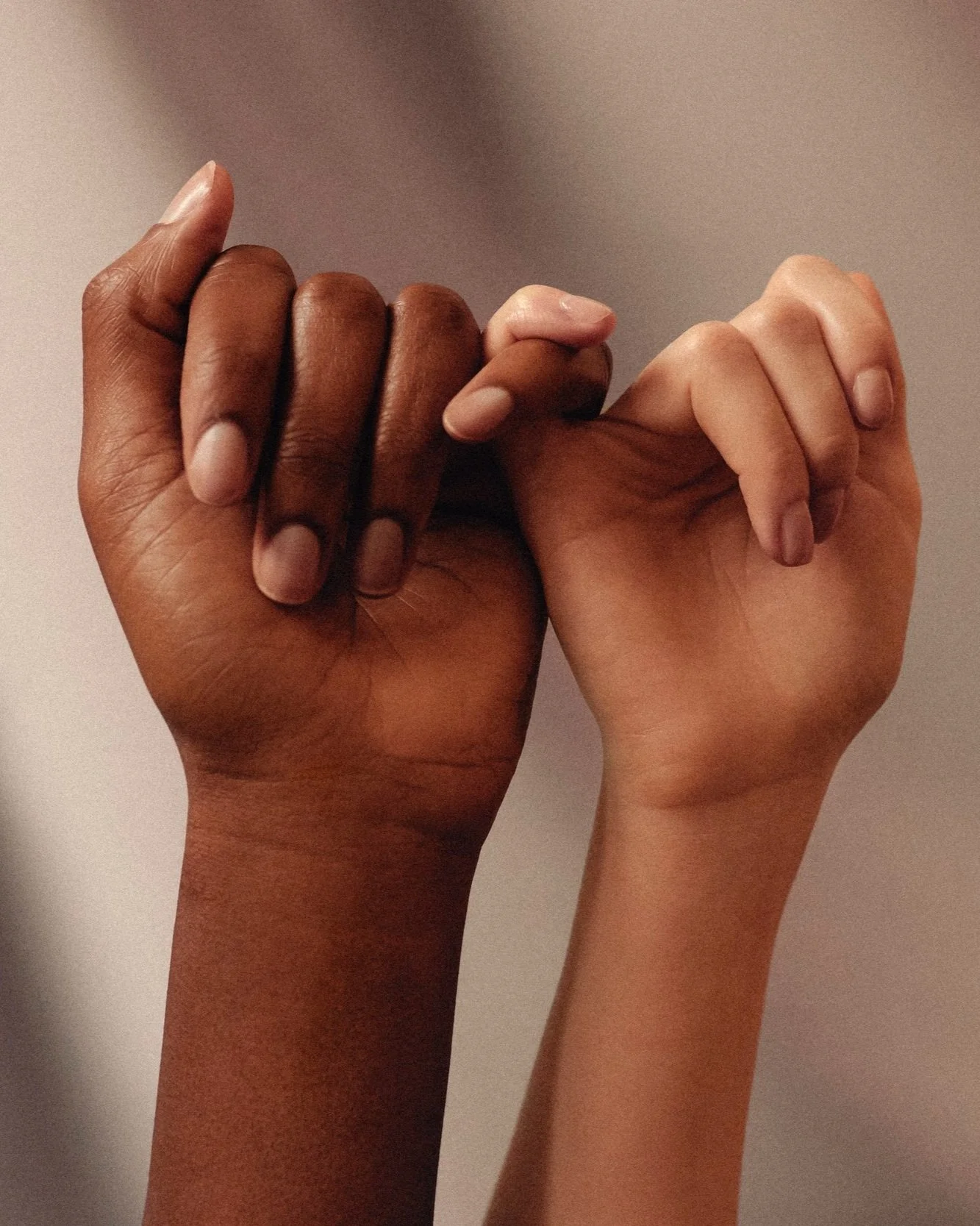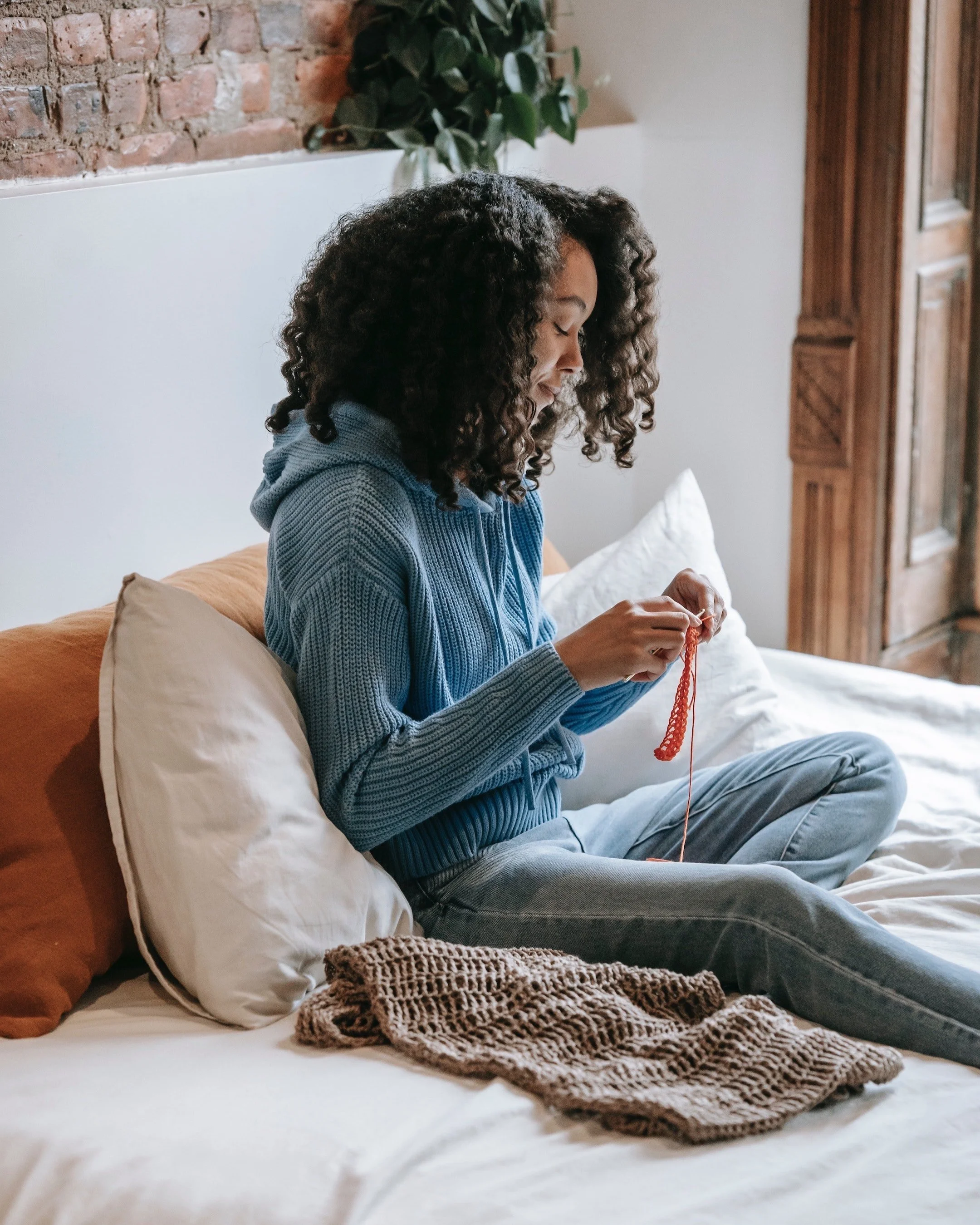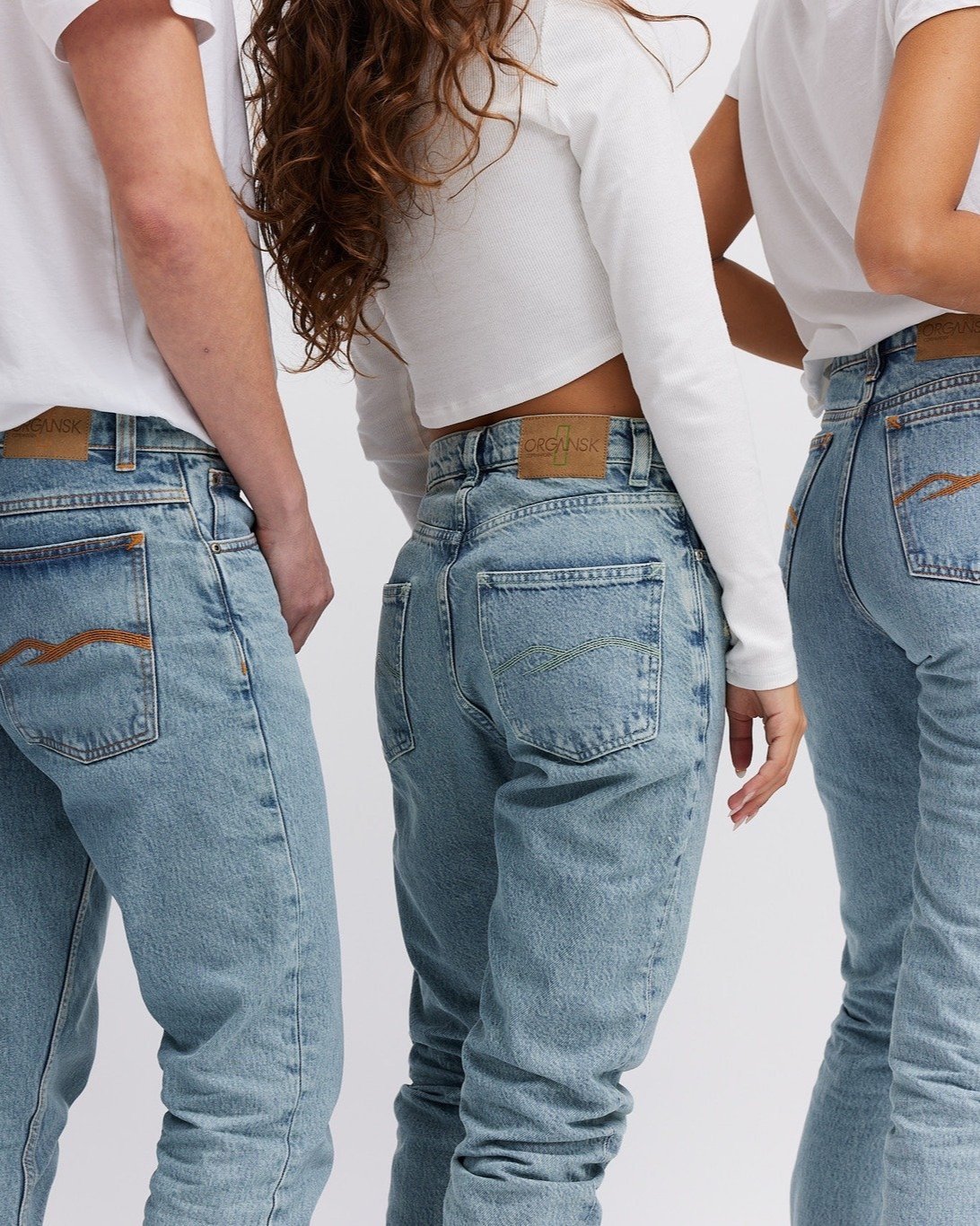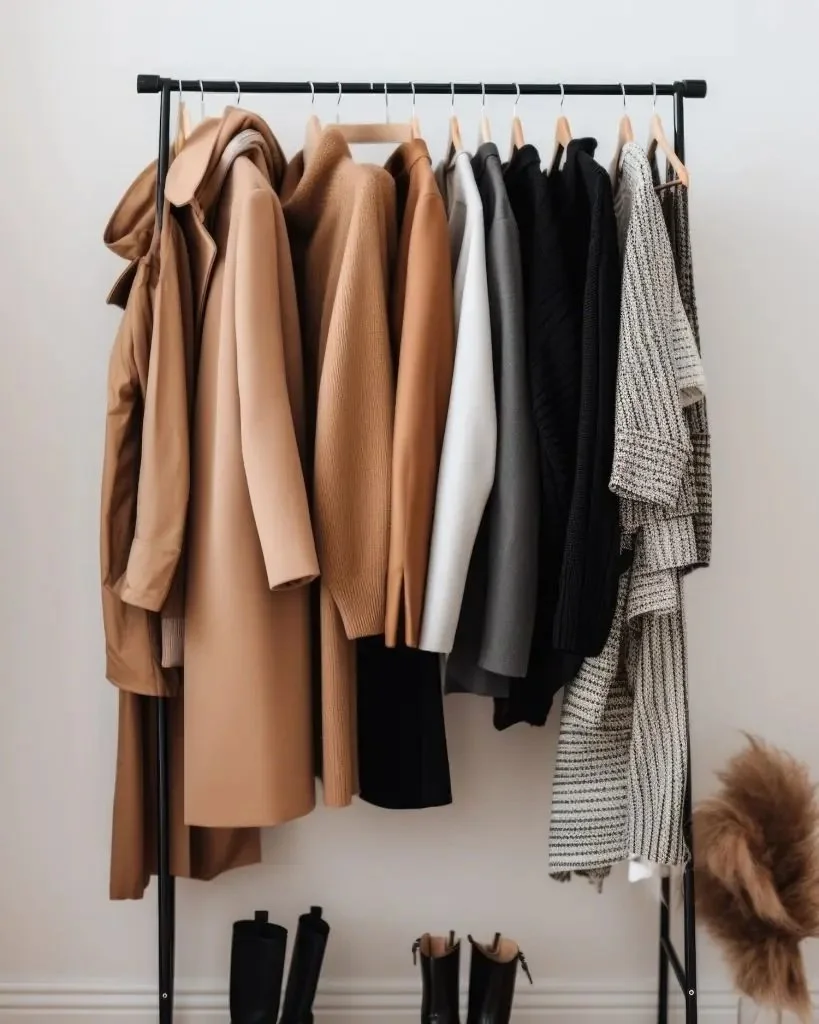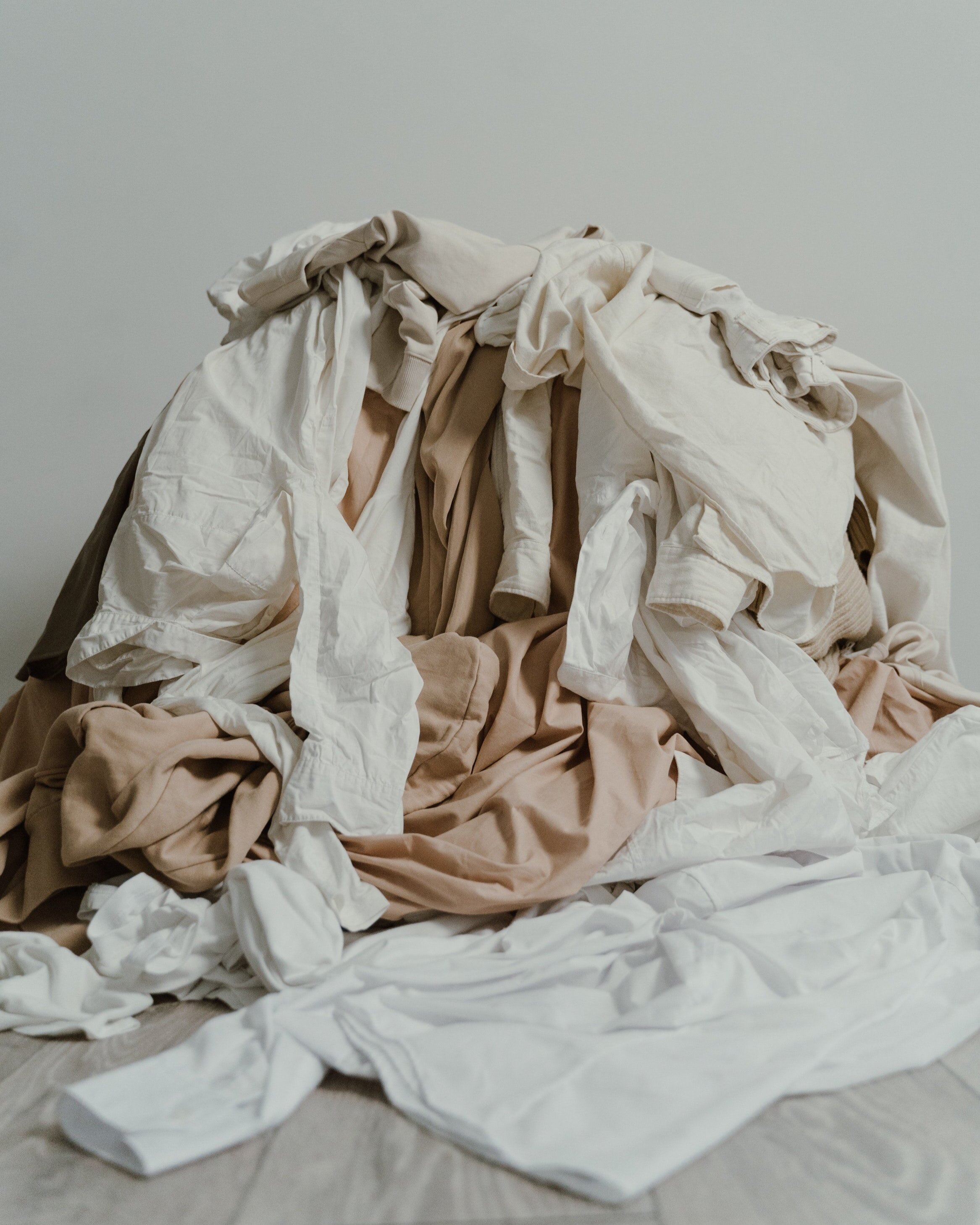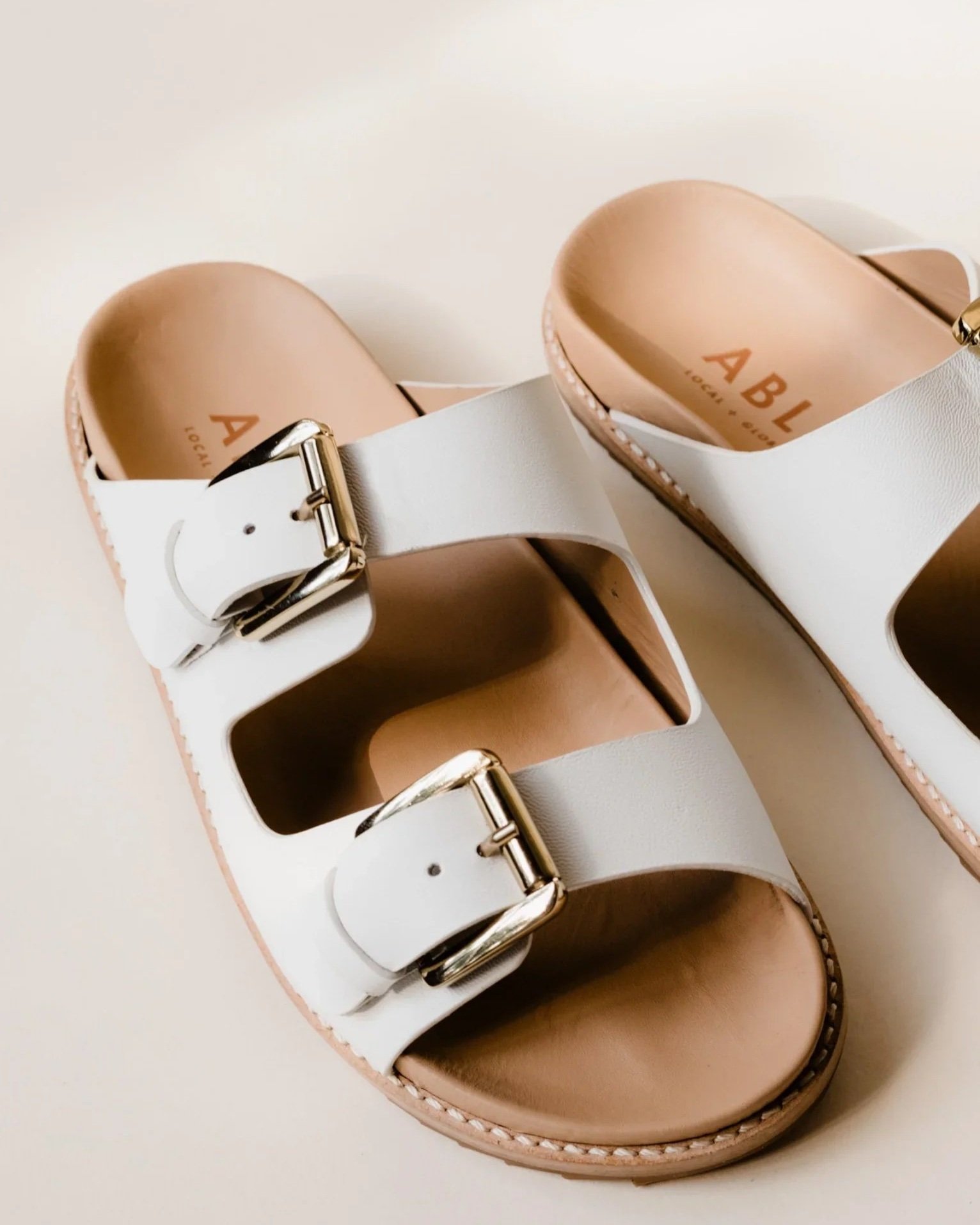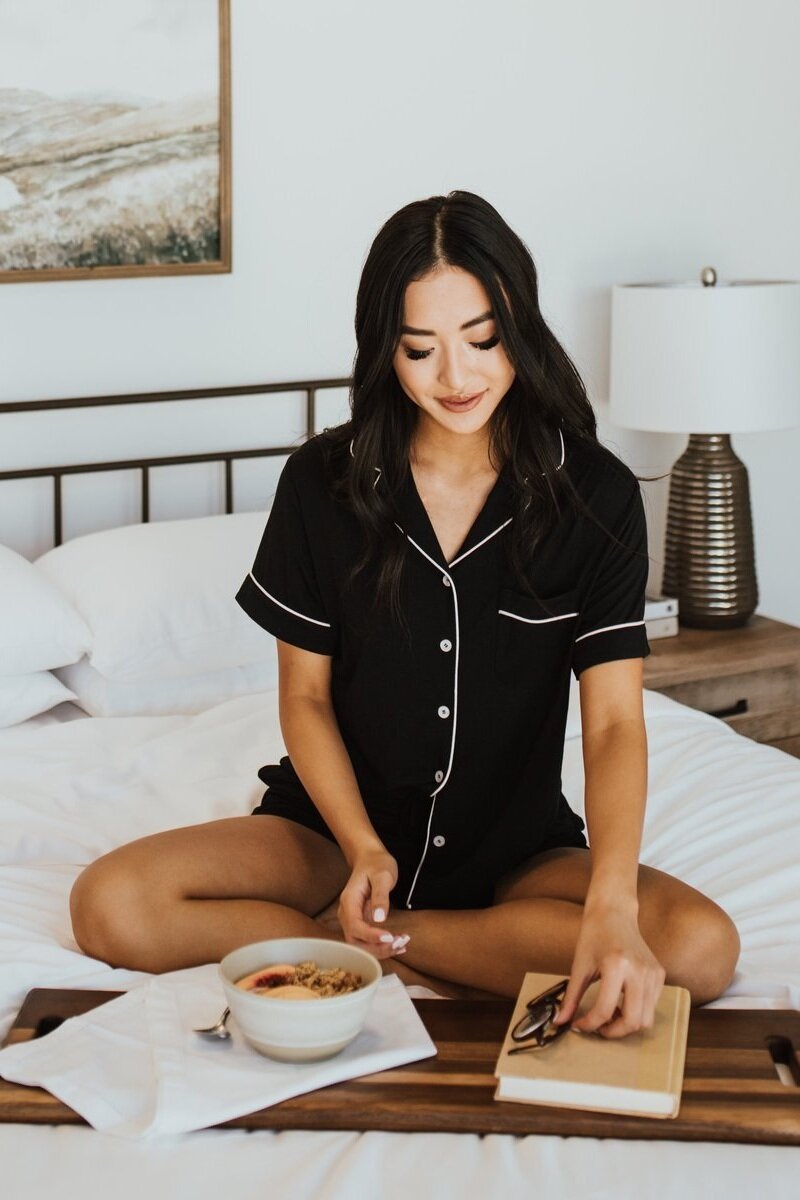
Welcome to your go-to guide for finding the best sustainable shoes that merge style with eco-friendliness! As we become aware of our impact on the planet, many of us fashion lovers are seeking out stylish options that are also kind to the environment.
In this article, we'll explore brands that focus on beautiful designs while ensuring ethical practices, using eco-friendly materials, and providing fair working conditions. No need to choose between looking good and doing good!
Disclosure: Some of the links below are affiliated; we may earn a small commission if you click through and make a purchase. We only feature brands that align with our values and contribute to a better world. Thank you for supporting these brands - and us!
Cover Image: Poppy Barley
Why choose sustainable shoes?
When we think about how shoes are made, it’s easy to overlook their impact on the environment. Sadly, the traditional shoe manufacturing process is far from eco-friendly. The fashion industry has a long-standing reputation for creating pollution and waste - from toxic chemicals used in production to creating shoes made from synthetic materials that just won’t break down.
Making conventional shoes often relies on extracting a lot of fossil fuels and requires a ton of water, not to mention the greenhouse gases released during the process. When we finally toss those worn-out kicks, the problem only gets worse. Most of these shoes end up in landfills, taking hundreds of years to decompose. Plus, the harmful chemicals from the production process can leach into the ground and water, making things even more toxic for our planet.
What makes a shoe sustainable?
When it comes to finding sustainable shoes, we always consider a few key things: Who's behind the brand? What materials are they using? Will I be able to wear these for a long time? At Sustainably Chic, we really value transparency in the supply chain. It’s important to me that the people crafting these shoes are treated well and paid fairly. It's all about making choices that feel good for both us and the planet!
Factors to Consider When Shopping for Sustainable Shoes:
When purchasing sustainable shoes, several factors must be considered to ensure you're making an informed and ethical choice. Here are some key considerations:
- Materials: Look for shoes made from eco-friendly and sustainable materials, such as recycled or organic materials. Try to avoid shoes made from virgin synthetic materials that contribute to pollution and waste.
- Certifications: Check if the brand has certifications or accreditations validating their sustainable practices. Look for certifications like Fair Trade, Global Organic Textile Standard (GOTS), or Bluesign.
- Supply Chain Transparency: Transparency ensures ethical practices throughout the supply chain. Research the brand's commitment to fair wages, safe working conditions, and environmental responsibility.
- Durability: Sustainable shoes should be designed to last. Look for high-quality craftsmanship and materials that can withstand everyday wear and tear.
- End-of-Life Options: Consider what options are available for recycling or repurposing the shoes once they reach the end of their lifecycle. Brands that offer recycling programs or take-back initiatives contribute to a circular economy.
Fortunately, we have conducted extensive research and know each of these brands personally, allowing us to attest to their quality and craftsmanship!
Our Top Picks for Sustainable Shoes:

1. Poppy Barley
Price: $195-445
Categories: Flats, Loafers, Mary Janes, Heels, Clogs, Mules, Ankle Boots
Materials: LWG Veggie-Tanned Leather
Poppy Barley is a Canadian brand and B-Corporation founded by two sisters in Edmonton, AB. Their company is committed to rethinking every step to create sustainably made, fairly-priced products designed to be worn on repeat.
In addition, they make insanely comfortable footwear and well-designed accessories with inclusive sizing ranging from 5-12, and they offer both medium and wide widths.
use code SUSTAINABLYCHIC-15 for 15% off your purchase

2. Everlane
Price: $39-278
Categories: Heels, Sandals, Flats, Loafers, Boots, Sneakers
Materials: LWG Leather, Wood, Recycled Polyester, Recycled Rubber, Recycle Cotton Canvas
Everlane’s sustainable footwear line is a reflection of the brand's dedication to eco-conscious design and transparency. Take the Tread-Bare Sneaker, for example. It's crafted with a recycled cotton canvas upper, a 100% natural latex rubber outsole, and recycled trims, leading to an impressively low carbon footprint of just 4.78 kg CO₂e per pair. Everlane is also committed to eliminating virgin plastics from its supply chain, using recycled materials in all of its products and packaging. With an emphasis on durability, comfort, and minimalist aesthetics, Everlane's sustainable shoes are worth adding to your closet!

3. Nae Vegan Shoes
Price: $40-277
Categories: Flats, Ballerinas, Sandals, Sneakers, Pumps, Boots
Materials: Piñatex, AppleSkin, Cork, Organic Cotton
Portuguese vegan footwear brand Nae Vegan Shoes (standing for No Animal Exploitation) was founded in 2008 and is well known for their beautiful animal-free footwear.
Additionally, their sandals, sneakers, boots and heels, all with European-inspired designs, are made with Piñatex, AppleSkin, cork, rPET, and On Steam Bioeco, the first ecological microfiber obtained partially from corn and recycled polyester.
use code NAECHIC15 for 15% off your purchase

4. Vivaia
Price: $49-229
Categories: Flats, Sneakers, Heels, Loafers, Sandals, Boots, Mules
Materials: Recycled Plastic Bottles
Vivaia is a sustainable shoe brand that started in 2020. They create their shoes using recycled plastic bottles, which are also machine-washable. By using 3D knit technology, Vivaia reduces waste in the production process while ensuring their shoes are comfortable and long-lasting. Their styles are all breathable with supportive insoles, proving that sustainable fashion can be both practical and beautiful.

5. Will’s Vegan Store
Price: $58-127
Categories: Chelsea Boots, Hiking Boots, Sandals, Sneakers, Loafers, Mary Janes
Materials: Bio-based vegan leather
The online vegan department store that makes shopping vegan shoes as easy as anything! Find classic brogues and sleek loafers, perfect for office wear or special occasions.
Will’s Vegan Store uses a vegan leather made from bio oil sourced from organic cereal crops grown in Northern Europe in a carbon-neutral process.

6. Biankina
Price: $70-126
Categories: Espadrilles, Sandals, Sneakers
Materials: Recycled Microfiber, Cork, Jute, Rubber
Biankina is a sustainable footwear brand based in Barcelona that sells vegan shoes, including a variety of sandals for women.
If you are looking for the perfect Birkenstock alternative, this brand is your best bet! They also have beautiful Espadrilles and Canvas Wedges.
use code SUSTAINABLYCHIC for 10% off

7. Cariuma
Price: $89-189
Categories: Sneakers, Slip Ons, High Tops, Boat Shoes, Skateboarding
Materials: Cotton Canvas, Cork Vegan Insoles, Recycled Plastic Laces, Bamboo, Sugarcane
For a classic look that will last for many years, Cariuma uses only ethical manufacturing, recycled packaging, and carbon-neutral shipping.
Additionally, they are a Certified B-Corp Brand, and every shoe is made in an ethical factory in China. These factories have strict codes of conduct & fair wages. Plus, each pair purchased, plants 2 trees!

8. Reformation
Price: $98-598
Categories: Sandals, Flats, Heels, Loafers, Boots, Sneakers, Special Occasion
Materials: LWG Leather
Reformation is a sustainable fashion brand committed to putting people and the planet first. Based in Los Angeles, they create stylish clothing using eco-friendly materials and low-impact processes, all while maintaining transparent supply chains. With features like carbon-neutral shipping and circular initiatives, Reformation makes it simple to look good without compromising your values. Certainly, with hundreds of shoe styles available, you're bound to find something you'll love!

9. Thesus
Price: $100-230
Categories: Everyday Boots, Rain, Snow
Materials: Recycled Rubber, Post-Industrial Car Seat Leather, Recycle Nylon & Foam
Thesus is a Canadian brand owned by a BIPOC woman. They create sustainable and vegan footwear suitable for all types of weather.
Handmade in Portugal, their shoes are made with over 95% natural and recycled materials, such as ocean plastics and natural rubber. Each pair of shoes helps remove up to 1.6 kg of waste from the environment, combining comfort, durability, and eco-friendly design.

10. Veja
Price: $120-190
Categories: Sneakers
Materials: LWG Leather, Recycled Water Bottles, Sugarcane, Organic Cotton
Veja is a footwear brand for the whole family. Its mission is to design shoes that will stand the test of time. If you’re looking for sneakers, the brand has different styles and colors to choose from. The lining of Veja shoes is made of organic cotton and recycled polyester.
We love that Veja is very transparent about its carbon footprint and even discloses the individual carbon footprint of its shoe models. It also follows fair trade principles and works directly with small producers.

11. LØCI
Price: $120-150
Categories: Sneakers
Materials: Bamboo, Cork, Rubber, Recycled Ocean Plastic
LØCI is a cool British sneaker brand that’s all about sustainable fashion. They make their shoes from recycled materials, like ocean plastics, bamboo, cork, and natural rubber, which means that each pair helps remove up to 20 plastic bottles from the oceans! Plus, their shoes are handcrafted in Portugal. To top it off, they donate 10% of their profits to marine conservation, so you can feel good about your purchase!

12. Alterre
Price: $155-440
Categories: Sandals, Slides, Heels, Mules, Flats, Pumps, Boots, Special Occasion
Materials: Recycled Plastic, Leather
Alterre New York is a sustainable shoe brand that creates customizable footwear for women who are always on the go. Their shoes have interchangeable straps, which means you can style them in different ways while owning fewer pairs.
Handcrafted in fair-wage factories and made from eco-friendly materials, Alterre blends fashion, functionality, and ethical production in every step.

WANT MORE SUSTAINABLE BRANDS? VISIT OUR BRAND DIRECTORY!
Our Brand Directory is home to hundreds of sustainable brands, from makeup to cleaning supplies, from underwear to shoes. We have broken everything down by category for easy shopping, along with discount codes unique to Sustainably Chic viewers.

